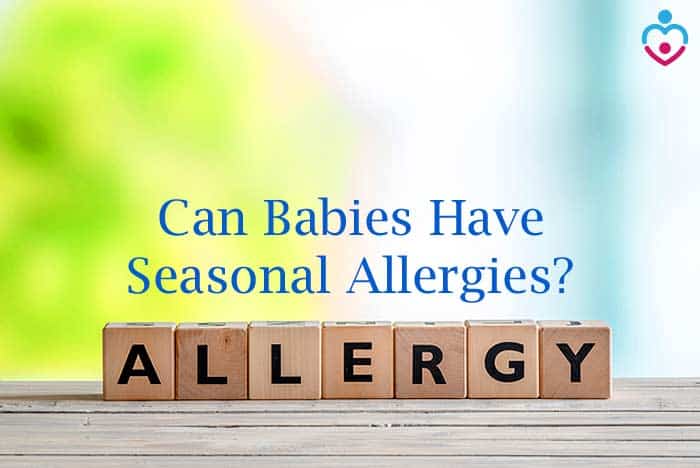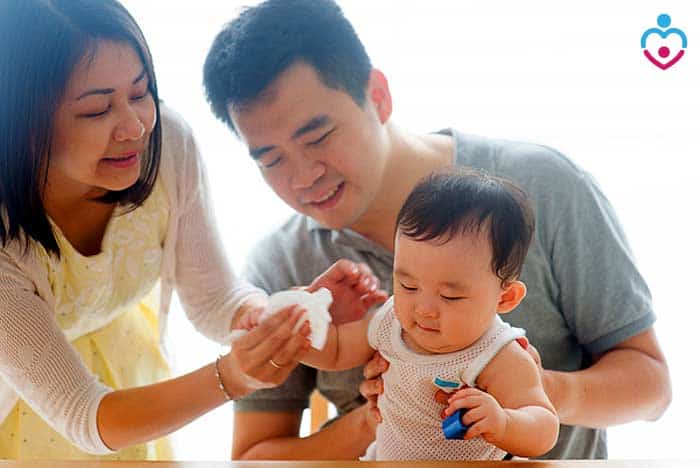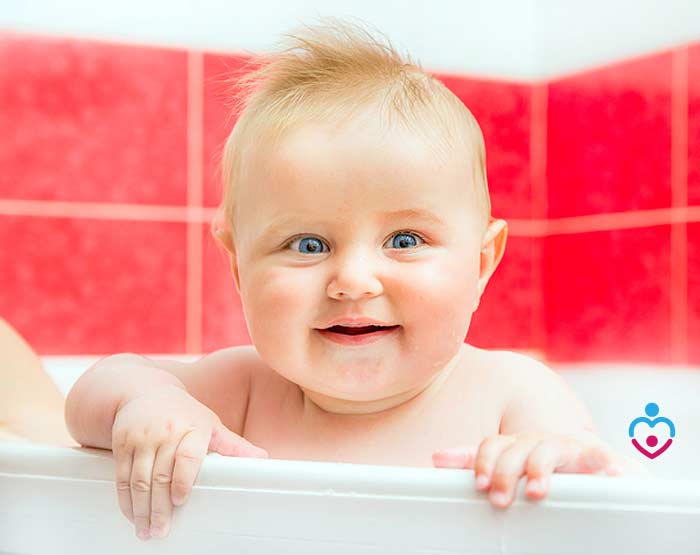
Seasonal allergies are common in adults, but you might wonder if they are just as prevalent in babies. First of all, you need to understand why these allergies even occur in the first place. Seasonal allergies are caused by pollen that comes from various plants such as flowers, weeds, grass, or trees.
New parents wonder these question - when do pet allergies show up in babies?, can infants have cat allergies, and more. Read on.
Jump to:
Can babies have seasonal allergies?
The good news is that seasonal allergies don't usually affect babies until they are at least two or three years old. If younger babies suffer from seasonal allergies is rare, and it should be addressed fast. .
However, you should stay informed about the impact of allergies on your baby's life so you recognize the signs quickly. Seasonal allergies don't usually happen in young infants because they don't spend enough time outdoors to develop such a reaction to pollen.
![]()
Baby Allergies Eyes / Baby Allergies Rash
The symptoms of a seasonal allergy vary from one person to another. Still, there are some common signs you can look for to identify such a problem.
- If your baby has a seasonal allergy, you should expect to see signs such as itchy eyes, runny nose, sneezing, and even eczema or rashes.
- Depends on the type of allergy your baby has, you will notice different symptoms, and the most common ones are nasal allergies.
![]()
Baby Nasal Allergies
Nasal allergies affect up to 40% of the children.

- This is the type of allergy that can appear as soon as your baby turns 6 months old.
- The most common symptoms of such an allergy are sneezing and itching eyes or skin.
- Nasal allergies can be triggered by pet dander, dust mites, mold, or other allergens that can easily be found inside the house.
- To avoid such allergies, you should always ensure that your house stays clean.
![]()
Allergy Medicine for Babies 6 Months
The way you treat allergies is crucial, especially for young infants that are not older than 6 months.
- The younger your baby is, the more difficult it becomes to find the right treatment for their condition.
- This is why it is essential to consult your doctor every time before administrating any treatment.
- The market offers a wide range of drugs that you can purchase over the counter such as Antihistamines, Nasal corticosteroids, decongestants, etc.
- In each one of these categories, there is a wide range of drugs, but not all of them will be suitable for your baby.
- It is essential to understand that seasonal allergies can be controlled at best but not cured. If your baby is 6 months old, you will be able to give them Clarinex, Allegra, or Zyrtec.
- You can find these drugs as tablets or syrups and administrate them to your baby as your doctor advises you.
Suggested Reading:
![]()
How to help a child with seasonal allergies?
There are ways to help your child if you discover that they struggle with seasonal allergies.

- You don't have to over-worry if your baby suffers from seasonal allergies or starts giving them a lot of medicine to fix this problem.
- Sometimes the best treatments are more at handy than you think. To avoid seasonal allergies, you should avoid spending too much time outside with your child when they are toddlers.
- But you have to avoid outdoor time in the morning and evening as that is when they might catch most of the pollen.
- Also, it is recommended to stay inside during windy days. Furthermore, a saline solution for their nose will help them alleviate the discomfort.
- You can make a saline solution by mixing eight ounces of boiled and cooled water with one teaspoon of non-iodized salt.
- Keep your child hydrated at all times, as this is one of the best weapons against allergies and other health conditions.
- Give your child a warm bath or shower once a week, as this will help relieve the symptoms of allergies as well.
The time that allergies appear in babies varies depending on the type of allergy you are talking about. If you don't expose your baby to pollen, they will not be at risk of developing seasonal allergies in the first years of life.
On the other hand, if you are curious about indoor allergies such as those caused by dust or pet dander, these can appear as soon as your baby reaches 6 months old.
Suggested Reading:
![]()
How Do Babies Develop Allergies?
Developing allergies is a process many people wonder about. Is your child born with a specific allergy, or have they achieved it over the years?
- The truth is that studies and researchers are still trying to figure out this aspect.
- Allergies are abnormal responses to what seem to be harmless substances such as pollen or animal dander, or bee venom.
- Allergies could be genetic. Studies show that if one parent suffers from an allergy, their child has a risk of up to 40 percent developing it.
- If both parents of a child have allergies, the baby has an 80 percent risk of developing them as well.
- While allergies that make it into adulthood might not disappear, children will lose some of their allergies as they grow older.
- So, if your baby has an allergy, that doesn't mean they will necessarily be having it all their life.
- There are also babies with no history of allergies in their family. Then, they develop such a condition by themselves according to how they interact with the environment and potential allergens.
![]()
Even if seasonal allergies are not a severe health condition most of the time, they should still receive the attention they need. If your baby develops symptoms specific to such a condition, you should talk to their doctor.
Symptoms of allergies could resemble symptoms of cold or flu, so it is important to diagnose them accurately before establishing the right treatment.
![]()
Key References
- "Seasonal Allergies in Babies: Symptoms, Prevention, and Treatment | Parents". Accessed August 07, 2020. Link.
- "Infants and Allergies: What Should Parents Watch For? - Allergy Center - Everyday Health". Accessed August 07, 2020. Link.



Leave a Reply